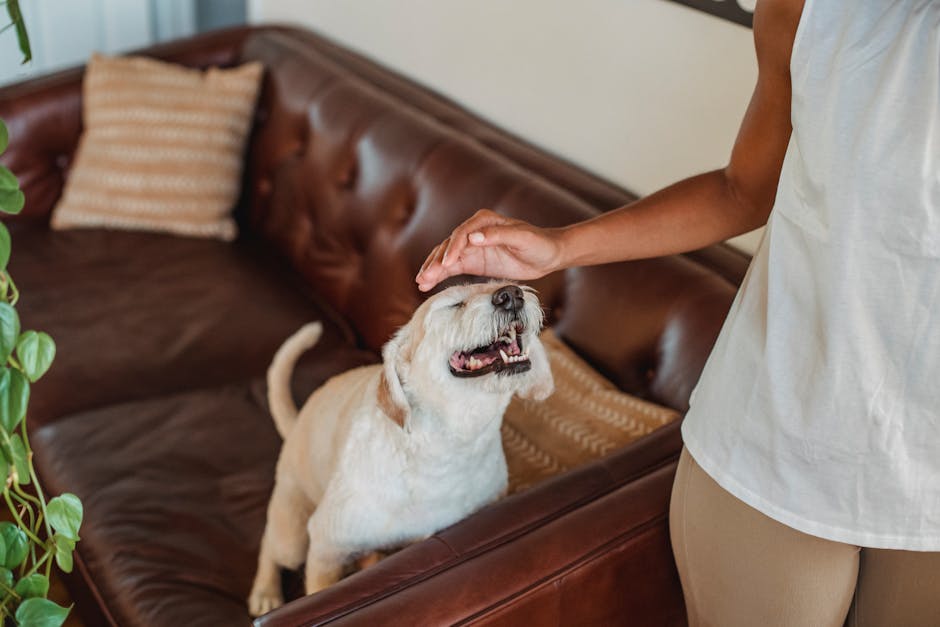Pet ownership is often hailed as a source of companionship and joy. However, aggressive behaviours in pets can disrupt this harmony, creating anxieties for both pet and owner. Understanding the root causes and implementing proactive strategies are crucial for fostering a safe and positive environment. This article delves into the multifaceted nature of pet aggression, exploring preventative measures that can help mitigate its occurrence.
Numerous factors contribute to the development of aggressive tendencies in animals. A comprehensive approach necessitates acknowledging the diverse range of motivations behind these behaviours, from inherent breed predispositions to environmental triggers. Addressing the underlying causes is key to finding effective solutions.
Genetics and Breed Predisposition: Certain breeds are inherently more prone to specific types of aggression. For example, some herding breeds might display guarding behaviours if not properly socialized. However, this predisposition does not dictate a predetermined outcome. Responsible breeding practices coupled with early and appropriate socialization can help mitigate these tendencies. A thorough understanding of breed-specific traits allows owners to proactively implement strategies to counter potential issues.
Early Socialization: A critical cornerstone in preventing aggressive behaviours is early socialization. Exposing puppies and kittens to a wide array of sights, sounds, and experiences from a young age is vital. This encompasses interactions with people of diverse ages and backgrounds, as well as exposure to other animals. Controlled, positive interactions help young animals develop appropriate responses to various stimuli. Positive reinforcement techniques should be employed throughout this process, focusing on rewarding calm and receptive behaviours.
Consistent and Appropriate Training: Reliable training methods play a significant role in shaping an animal’s response to external stimuli. Consistent training routines teach clear boundaries and expectations, promoting respect and predictability. Positive reinforcement techniques, focusing on rewards for desired behaviours, are highly effective in this context. This method not only establishes behavioural patterns but also fosters a stronger bond between owner and animal. Avoid punishment-based training methods, as these can inadvertently escalate anxieties and worsen behaviours.
Environmental Factors and Triggers: Recognizing and mitigating environmental factors is equally crucial. A chaotic or stressful home environment can elevate a pet’s anxiety levels, leading to reactive behaviours. Factors like overcrowding, loud noises, changes in routine, and lack of enrichment can all trigger aggressive responses. Addressing these stressors with suitable modifications, such as creating designated quiet spaces, introducing calming routines, and providing interactive toys, can dramatically improve a pet’s overall well-being.
Nutritional Considerations: An animal’s diet can influence both physical and mental health. A well-balanced diet can support proper brain function, contributing to improved mood and reduced aggression. Conversely, nutritional deficiencies or imbalances can lead to behavioural changes, including irritability and aggression. Consulting a veterinarian can help determine if nutritional adjustments are necessary. Moreover, ensuring appropriate portion sizes and avoiding overfeeding can also contribute to a pet’s emotional regulation.
Veterinary Care and Underlying Conditions: Significant medical conditions can sometimes mask themselves as behavioral problems. Addressing potential underlying medical conditions is paramount. Regular veterinary check-ups allow for early identification of any physical or psychological issues, thereby enabling prompt treatment. If aggression appears suddenly, or if it persists despite other interventions, consulting a veterinarian specialising in animal behaviour is crucial. A professional diagnosis can pinpoint any hidden medical causes, ensuring appropriate treatment and a positive outcome.
Understanding Individual Needs: A tailored approach to each pet is crucial. Each animal has unique personalities, needs, and sensitivities. Recognizing these individual differences is essential for crafting successful preventative strategies. An open and honest communication with the veterinarian and pet behavioral specialist can aid in tailoring a specific approach that works best for the particular circumstances.
Proactive steps in pet care and training can profoundly affect the development and expression of aggressive tendencies. By focusing on these preventive aspects, pet owners can create a more harmonious and fulfilling environment for their beloved companions. A proactive approach, grounded in understanding and patience, goes far beyond simply addressing existing issues; it fosters a positive and supportive relationship between owner and pet.
